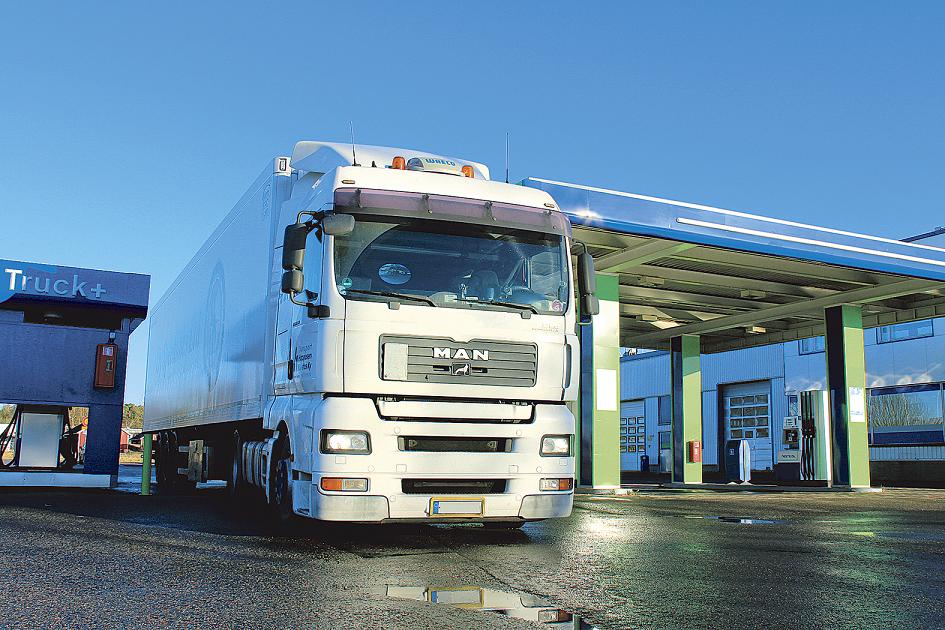The lack of ingeniuity in fiscal policing and the government’s greediness led to an unjustified expansion of fuel excise taxes. And, contrary to the Finance Ministry’s predictions, it turned out that gross receipts were pettier than before.
According to the National Agency for Fiscal Administration (ANAF), for the second trimester in 2014, after applying the tax hike, the gross receipts diminished by 387 million lei, due to a slump in fuel consumption, as the National Institute of Statistics later confirmed. On this occasion, the most important transporters admitted publicly they decided to shift to countries with more decent fuel prices. Actually, the National Union of Road Hauliers (UNTRR) from Romania estimates that up to 70% of the fuel supplies required by companies can be purchased from other EU states. A totally legitimate decision, since prices for gasoline and diesel are among the highest in Europe, keeping that less than a year ago Romania boasted some of the cheapest fuels in EU. Furthermore, fiscal facilities such as VAT or (part of) excise rebate work far more easily in other member states.
What the business environment has to say
In order to avoid profits erosion, companies looked for more or less original solutions. Andreea Steinhart, partner, Contexpert, explains that “relying on solid contracts, major oil companies provide the hauliers with pre-paid fuel cards, for which they issue invoices on a monthly or bimonthly basis. And, unlike the Romanian practice, in other European countries firms can do no-VAT invoices, which allows the transporters to highly improve their cash-flow and to refund their VAT through the oil companies, thus shunning all the bureaucratic procedures of rebating from Romania or other countries, which may take a long while. Oil companies, in turn, are OK with this manoeuver, since it doesn’t affect the total group sales, as they make up for the losses in Romania by reporting equivalent growths on other markets. The only loser here is the public budget, devoid not only of VAT and excise taxes from these transporters but also of income taxes and dividends from the oil companies with shrinking revenues on the local market”.
No-VAT invoicing
Therefore, transporters come to pay less for fuels, not only due to the price difference, but also because of the option of not invoicing the 24% VAT rate, the third largest in the European Union. Besides, they may always ask for a partial tax rebate from the respective countries.
After the excise hike came into force, the Finance Ministry published the norms for the reimbursement of four of the additional seven cents, but it failed to please the carriers. In Hungary, for example, there is a reimbursement procedure for 5.5 cents/liter, with a monthly rebate – in Romania, the 4 cents are paid back on a quarterly basis. When Capital magazine asked for the total number of companies and the total reimbursement amount, ANAF claimed it is not in the position to share this information.
In theory, transporters can recoup their VAT contribution in Romania, but in practice the procedure is tiresome, it takes incredibly long and deadlocks the companies’ cash-flow.
It is for this reason that the invoicing options made available to transporters by international fuel suppliers become a sheer facility, leading to cost reduction and time saving (by simplifying unnecessary red tape). Besides, pre-paid fuel cards can acquit road taxes and other products/services provided so in the respective contracts and for which the transporters can ask for a VAT refund.
In Andreea Steinhart’s words, “companies with main activities in passenger transport or freight haulage can opt for a net invoicing program, known as a “financed refund”, that allows reclaiming the VAT paid within the deadline provided by the contract, also including the oil company commission.
Another invoicing program is targeted on those companies that aren’t listed as carriers, but whose lines of business involve international transport activities. For these firms, net invoicing is not an option, but they still can benefit from the common VAT refund procedure. Thus, after issuing the invoice for all products/services (VAT included), one has to submit declaration no. 318 regarding the VAT refund in the name of the Romanian-based company, and, once the oil company or another subcontracted firm receives the money from the state where the transactions took place, a credit note containing the refunded VAT will be issued.”
The pre-paid fuel cards are also available on the Romanian market, where they are invoiced according to the fiscal rules here, with a 24% VAT addition and an obligation for the carriers to manage the refunding procedure.
The carriers’ warning
The rising taxes, the facilities presented by the oil suppliers and the lengthy, burdensome bureaucratic process for VAT and excise rebate ruined the government’s plans to increase cash collection from this source. Before the introduction of the excise duty, UNTRR warned that “would the government increase the excise tax, the carriers operating international routes will have to fuel the tanks outside the country. If only 13% of the total diesel sold in Romania is replaced by foreign fuel, any hypothetical gain of the Romanian state will be flattened”. As things turned out, the carriers’ representatives were right. According to a press release back then, UNTRR explained that “a Romanian transporter covering international routes with 200 trucks needs 600,000 diesel liters per month, half from Romania, the other half from abroad. If the excise duty is introduced, 500,000 liters will be supplied by external gas stations”.
This excise duty “experiment” shows that the market is reactive, and any shock will be met with new alternatives of avoiding any additional costs. Contrary to the government’s estimates, not only did excise tax collection go down, but there is a risk that other gross receipts might shrink, either VAT, income or dividend taxes for oil companies shifting part of their sales to other subsidiaries. In other words, the business environment protects its profits, as expected, while the state falls behind, through an error-prone fiscal policy.





